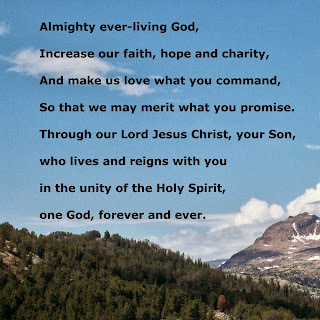The word shame occurs 285 times in the Bible; 42 times in the Book of Psalms. We hear of it early in the Book of Genesis, "The man and his wife were both naked, and were not ashamed."
Immediately, even before we read of the Fall, we realize that sin causes shame.
Shame has to do with our strong resemblance to God -- that is, our dignity and freedom -- and threats to them. We feel particular shame when we are helpless before powerful persons who cruelly take advantage of our helplessness. Even the possibility of harm is hurtful, and it's made worse by sharp memories of past experience.
It has much to do with our bodies. People who are tortured may be left with a traumatic memory which never leaves them, as are women and men who are raped. We may also experience shame due to our apparent ignorance, or financial distress, or social awkwardness. Whenever others take advantage of our human weakness and fallibility, we're likely to feel the paralyzing effects of shame. Many people feel deeply ashamed of their poverty, despite the ever widening gap between wealth and poverty, and the fact that the vast majority of human beings are very poor.
Powerful persons, institutions, armies, and governments intentionally use shame as a weapon to neutralize resistance. The Jewish authors of the Bible, whose nation was never very strong against the domination of Egypt, Assyria, and Mesopotamia, spoke of their national experience as they looked to God for vindication. Invading armies did not restrain their soldiers from raping men, women, old people and children.
Christians see the ultimate crime of shame in the Crucifixion of Jesus. The Romans crucified naked men and women to emasculate victims, their families, friends, and peoples. If you had seen your father crucified and heard him call your name and beg you to save him, you might never show your face in public again. Nor would your friends want to see you.
But Christians also see the ultimate display of God's vindication in his resurrection. We laugh at the soldiers who were ordered to make sure his body was not stolen. There was nothing they could do! Rome could not keep him dead! Our Easter songs are cries of laughter: ha,ha,halleluia!
The disciples had fled to the Upper Room. The last scraps of the Supper were still on the table when Jesus was arrested. They did not come out until he appeared to them in that same room. Then suddenly, they knew no shame. Filled with his Spirit, they could not be put to shame in any way.
Shame is a very deep spiritual wound. Psychologists often address the emotion of fear; but, if they fail to acknowledge religious realities, they must urge their clients to simply ignore shame and guilt. Unlike dogs and unwanted companions, shame does not go away when we ignore it.
In my experience, shame does not respond to the Sacrament of Penance very well. Many victims of abuse were told by their tormentors that they were responsible for what happened. They, not the powerful, had committed the crime. But, because they were innocent, the same victims find no relief in confession. I recommend, and usually offer, the Sacrament of Anointing of the Sick.
Because the wounds of shame run deeply into our self-esteem, healing may take a long time. We have to relearn how to think of ourselves, while ignoring the persistent, invasive spirit of the tormentor. That evil spirit must be condemned to hell and there is no more powerful Redeemer than Jesus Christ.
The sacraments and our daily prayers teach us to think as God thinks and to see as God sees. There is only one Judge and he is merciful. Whatever I may think of my own worth and character, I dismiss as rubbish. It is the Lord who judges me.
Neither guilt nor shame should be ignored; both must be addressed by our Merciful Savior. In the end we will see our lives as gospels; every biography will be Good News as it includes the Passion, Death, and Resurrection of Jesus. Ignoring or suppressing these painful stories is not simply ill-advised; we should not miss the opportunity to see another of God's mighty works.
Even as we sit on our dungheaps of helplessness we can say, "I know that my Redeemer lives.











